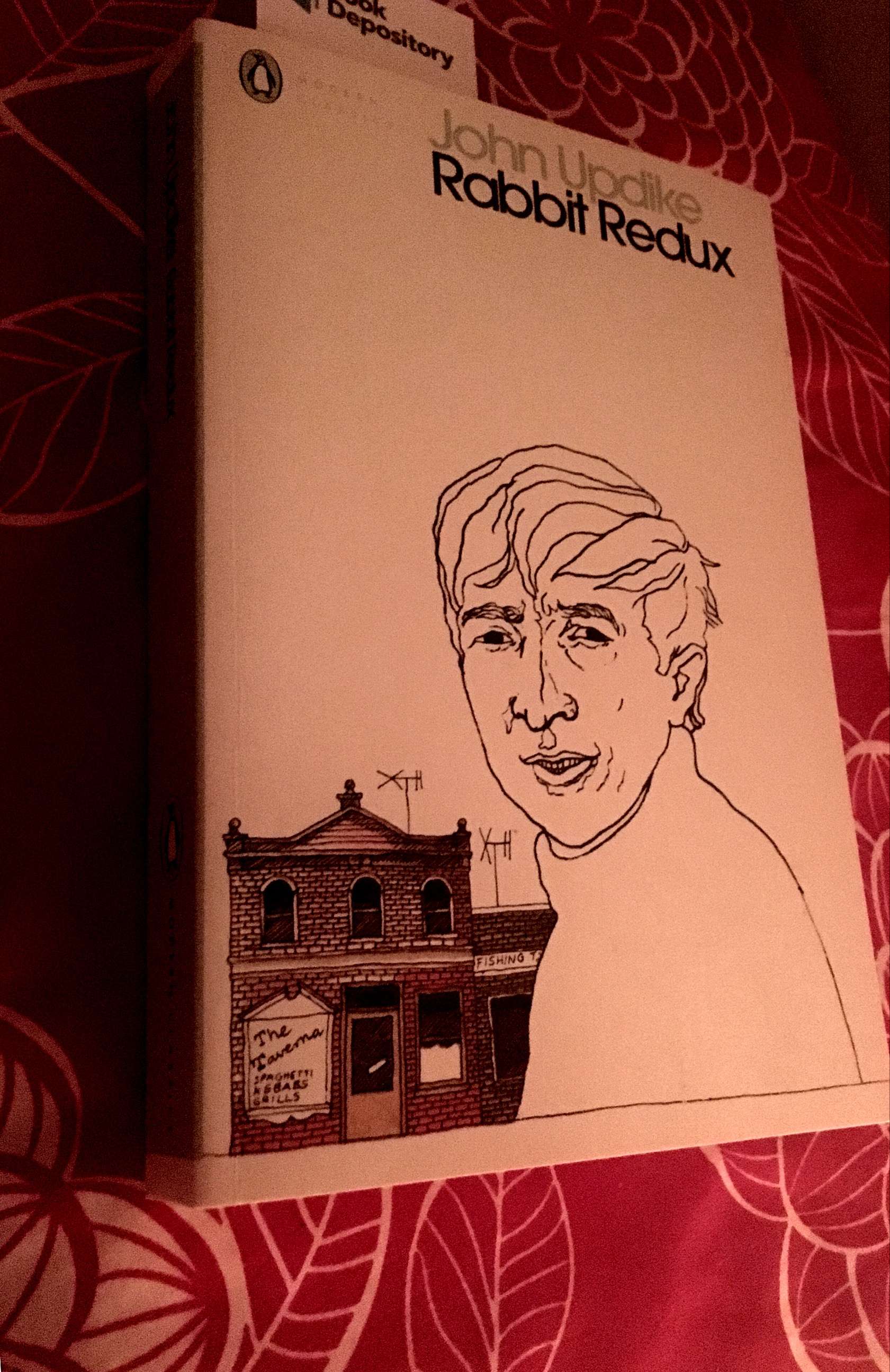"How sad it was with Harry now, they had become locked rooms to each other, they could hear each other cry but couldn't get in, not just the baby though that was terrible, the most terrible thing ever, but even that had faded, flattened, until it seemed it hadn't been her in that room but an image of her, and she had not been alone, there had been some man in the room with her, he was with her now, not Charlie but containing Charlie, everything you do is done in front of this man and how good to have him made flesh"
Even though there are aspects of the speech used, the technology and the mind set that firmly set this in the past (some of which would be considered quite offensive when viewed through today's eyes), it is the way that Updike so evocatively describes the harsh way ordinary people can hurt each other that makes this a classic.
Harry is not a likable guy. The first novel proved that. He peaked in high school and then proved a particularly unreliable husband in Rabbit, Run and it is hard to forget the tragic drama of the end of that novel. It permeates here and yet time has passed and Rabbit is now in middle age. His previously downtrodden wife is now getting her own back with Charlie Stavros from the Toyota dealership. Left alone with his young son, Harry seeks escape and meets Jill, a rich, runaway with a tendency to overindulge in drugs. Through Jill he also meets Skeeter an African-American Vietnam Vet on the run from the Law. He takes both in to his house, which (along with his young son, Nelson) makes for an odd foursome. The neighbours are none too happy with the atmosphere of drugs and sex they espy through open windows.
There's a sense that Rabbit has completely lost his way with Janice's betrayal and departure and his new housemates provide a strange form of escapism. The junkie and the would-be cult leader. Things get weird. I don't want to give too much away, needless to say they get very dark, much like the first novel did.
Updike expertly describes the headspace of his characters in relation to sex. He captures the ridiculousness of it, the strange push, and pull, the way it can unite or dehumanise. The marriage breakdowns of Harry and others in the book illustrate the void that occurs when passion dies, that sense of invisibility and the scarred battlefield of bruised egos. The way that an inability to communicate those feelings can fester into pure hatred and destruction. It is that level of insight that propels you through the book, despite the less than appealing characters. The poor behaviour of Nelson's parents is particularly frustrating. That kid goes through a lot - I just wanted to give him a hug.
5 out of 5 - its the Remix.

No comments:
Post a Comment